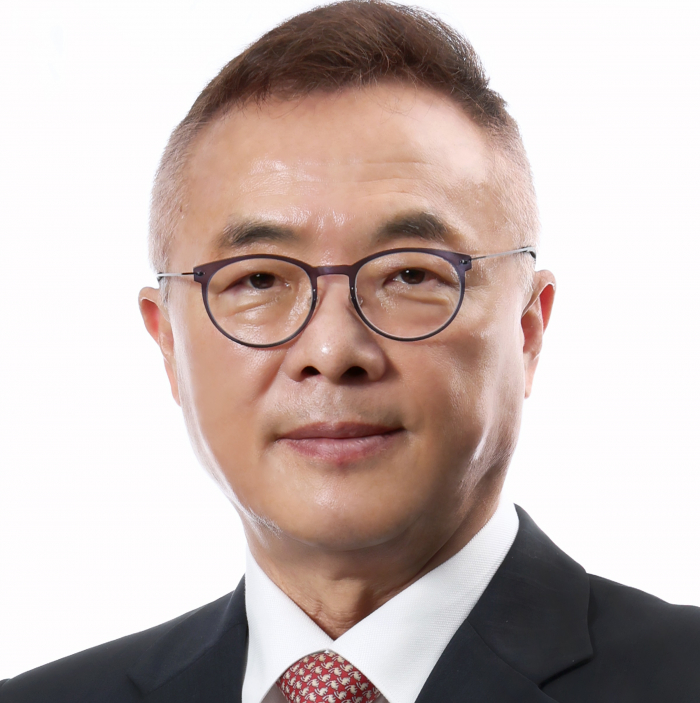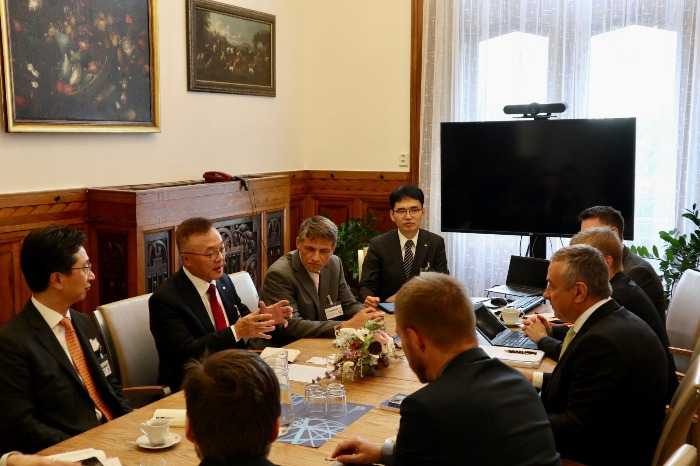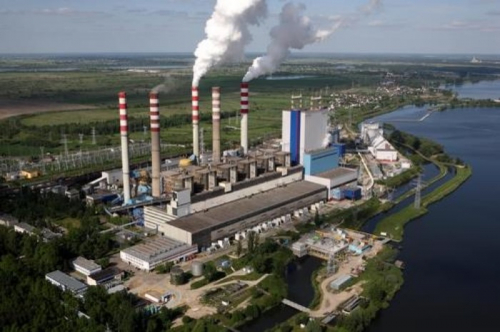Perspectives
KoreaŌĆÖs nuclear power: Ample export opportunities ahead
Small modular reactors are expected to complement renewable energy and play a crucial role in realizing zero carbon
Jan 30, 2023 (Gmt+09:00)
4
Min read
Most Read
Samsung shifts to emergency mode with 6-day work week for executives


Alibaba eyes 1st investment in Korean e-commerce platform


Blackstone signs over $1 bn deal with MBK for 1st exit in Korea


NPS loses $1.2 bn in local stocks in Q1 on weak battery shares


OCI to invest up to $1.5 bn in MalaysiaŌĆÖs polysilicon plant



Before the crisis, countries were already rushing to transition to low-carbon energy to respond to climate change. Now they are devoting more attention to nuclear energy to ensure both energy security and carbon neutrality.
Korea is not too far from the situation. Energy security overrides other priorities in Korea, practically an "island" in terms of energy.
As such a secluded land, Korea has used nuclear power to barely survive the energy crisis in the early 70s, and later on secure energy reliability. The Korean government fosters the ability to propagate the opportunity in promoting exports of nuclear power plants.
Korea, as it is now, aims to export operational and maintenance technologies and equipment, moving on to new build projects.
Korea Hydro and Nuclear Power (KHNP), the nationŌĆÖs sole nuclear power operator, in line with government policy, is putting its best effort to win overseas orders to build 10 nuclear reactors by 2030.
The Barakah nuclear power plant in the United Arab Emirates is South Korea's first overseas nuclear project, for which KHNP's parent company Korea Electric Power Corp. has agreed to build four APR1400 reactors. The deal marked the first export deal for the APR1400 developed by KHNP.
It speaks for the "one of a kind" project management capability of "Team Korea," or an alliance of Korea's nuclear power builders and components suppliers.
Team Korea has completed two of the four nuclear reactors, which have already begun commercial operations.
The UAE project has demonstrated KoreaŌĆÖs superior capabilities in design, manufacturing, commissioning, and operation, on top of its price competitiveness. The APR1400 model also boasts strong supply chains and technologies in full compliance with the European Utilities Requirements and the US Nuclear Regulatory Commission.

Leveraging its strengths, Korea is gearing up to expand into the broader global nuclear market. The projects in the Czech Republic and Poland are the two imminent targets, on which KHNP is focusing its marketing efforts.
For the Czech project, KHNP has already submitted a bid thoroughly prepared to meet the stringent requirements of the project owner.
Moreover, KHNP, as a trustworthy partner, has been at the heart of the endeavors with high-ranking government officials, industry, academia and residents of the construction site, as well as the general public.
The company is resolved to go the extra mile to hand in an updated bid by September, and engage in a range of contract-winning activities with the full support from the Korean government.
The Polish project has intrigued KHNP as the envisioned sites are advantageous due to access to the existing grid and large quantities of cooling water. KHNP, with its home-grown reactor APR1400, is eager to provide clean and affordable electricity for Polish people by replacing existing aged coal-fired power plants with nuclear reactors.
Other countries have expressed a great deal of interest in the Korean reactors. Among them are the Netherlands and Kazakhstan, with which the company has already formed a cooperative relationship.
KHNP plans to maximize the possibility of receiving orders through customized marketing approaches and proposals.

Going beyond new build projects, KHNP is willing to expand its business models in the nuclear market. It is diversifying export items tapping into its prowess and experience gained through 40 years of domestic plant operation and maintenance.
Prime examples are a tritium removal facility (TRF) project in Romania and the resumption of Bataan nuclear power plant construction in the Philippines. Surely, the projects will open up golden opportunities for KHNP to transfer its technology and know-how to the host countries economically and securely.
Concurrently, KHNP is exploring the potential of small modular reactors (SMR). SMR, with its siting flexibility and strong safety features, is expected to play a crucial role in realizing zero carbon by complementing renewable energy.
KHNP is set to develop customer-oriented business models, kickstart marketing in the innovative SMR development phase, and attract investment from the private sector.
To go down untrodden paths, one needs a great deal of courage and the spirit of challenge. Though KHNP may face hurdles walking down "untrodden paths," KHNP will spare no effort in its path to becoming a global nuclear powerhouse.
(This article was contributed by Korea Hydro and Nuclear Power CEO Whang Joo-ho)
Yeonhee Kim edited this article.
More to Read
Comment 0
LOG IN







